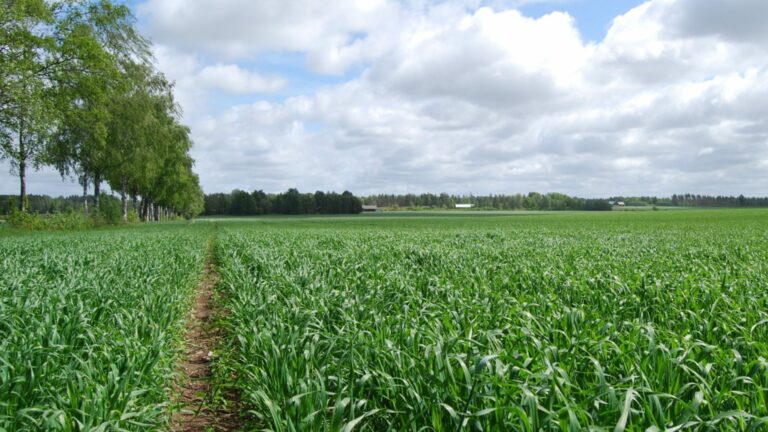Choosing KRAV-Labelled Food Benefits You, Too
When you choose KRAV-labelled food, you’re not only helping the planet—you’re doing yourself a favour.
KRAV-labelled raw materials, such as fruit and vegetables, contain fewer chemical pesticide residues. While these crops are never sprayed with the synthetic pesticides used in conventional farming, small traces of chemicals can still be present due to their circulation in soil, air, and water.
Processed foods with the KRAV label also contain fewer additives than their conventional counterparts. While Swedish law allows around 300 food additives, KRAV approves only about 50—and none that are artificial colourings, flavourings, or sweeteners.
Supporting Biodiversity – 50% more species on organic farms
KRAV-certified farming embraces diversity, reflecting the way nature works. Biodiversity—meaning a wide variety of plant and animal species—keeps ecosystems balanced and resilient, for example, in the face of climate change.
On average, organic farms have 50% more species of plants and pollinators than conventional farms. KRAV-certified farms host more flowers, plants, bumblebees, bees, and other pollinating insects. This is due to practices such as diverse crop rotations and grazing animals like cows, which maintain open landscapes where more species can thrive.
A key reason for this biodiversity is the absence of synthetic pesticides. These chemicals, while targeting pests, also harm beneficial insects, disrupt ecosystems, and contaminate waterways. Some are endocrine disruptors or toxic to aquatic life, and residues have even been detected in drinking water sources. Choosing KRAV-labelled food helps protect both human health and the environment.
No GMOs Allowed
Genetically modified organisms (GMOs) have had their genetic makeup altered in ways that cannot occur naturally. In Sweden, it is illegal to release GMOs that may harm human health or biodiversity, though some GMO-derived products—such as oil from modified rapeseed—are still permitted under EU rules.
Due to the uncertainty about how foreign genes might spread in nature, KRAV bans all GMOs in both domestic and imported products. KRAV will not approve any substance or material that may pose a risk to the environment or human health.
No Nanoparticles
For precautionary purposes, KRAV also does not allow materials made of nanoparticles, very small particles that are found in food supplements and nutritional drinks, for example. The purpose of the nanoparticles is that they may be more easily absorbed in the body. They are also used in packaging.
Knowledge about how nanomaterials behave in the environment or how they affect the human body is inadequate. In the new EU regulation for organic production, which will come into force in 2021, nanomaterials are prohibited.
Safer Packaging
KRAV sets strict environmental requirements for packaging. Materials containing harmful substances, such as Bisphenol A, are banned. PVC plastic is only permitted in lid seals and metal liners. These rules apply equally to imported KRAV-labelled products and go beyond EU organic standards.
High Environmental Standards
KRAV-certified companies must meet rigorous environmental requirements. They are obligated to work systematically to protect both the natural and cultural environment, and certification bodies check compliance during audits.
KRAV-labelled products are a safe, responsible choice—for you and for the planet.
